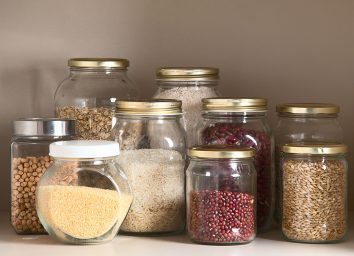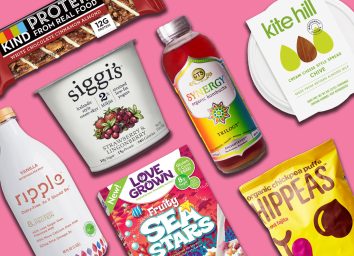50 Easy Things You Can Do Daily for Better Heart Health
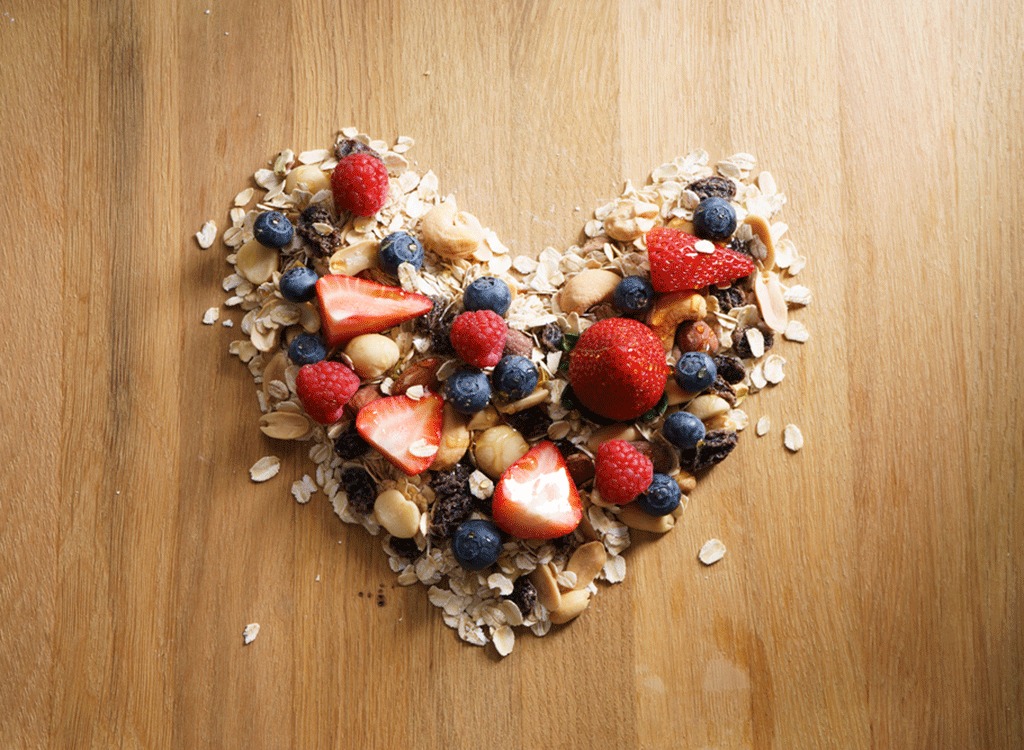
You only have one heart, but many of us aren't taking very good care of our tickers. In fact, cardiovascular disease is the number-one cause of death globally, according to the World Health Organization. In the United States, approximately 610,000 people die from heart disease every year. Yikes.
But here's some heartening news: You can help protect yourself against cardiovascular disease by making simple and small changes to the way you eat. After all, food is medicine. Here are 50 ways to boost your heart health from the comfort of your own kitchen.
Sprinkle Some Seeds
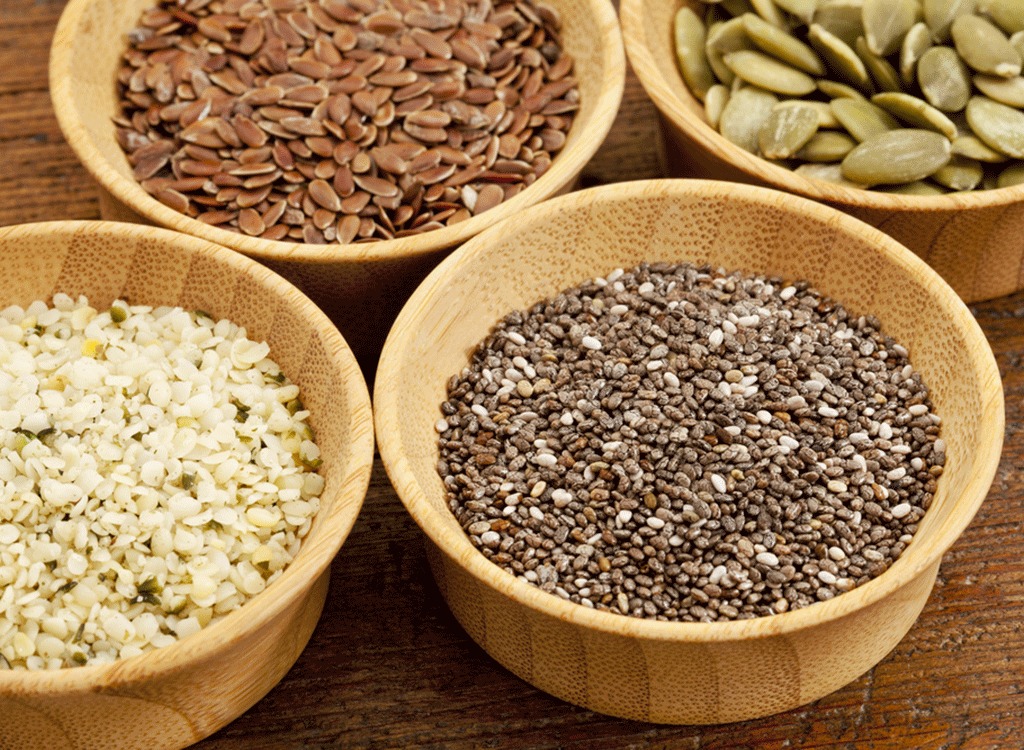
"Loaded with fiber and healthy fat, seeds like chia, flax, and pumpkin are a great addition to yogurt parfaits, oatmeal, cold cereal, and salads. Adding a few tablespoons to different meals and snacks can boost your heart's health," says Amy Goodson, MS, RD. Goodson says that the fiber in seeds can bind to cholesterol. Because your body doesn't digest fiber, it passes through your system—taking the cholesterol with it.
Eat Your Fatty Fish

Fish isn't just a good source of protein—it's rich in omega-3 fatty acids, too. According to the American Heart Association, omega-3 fatty acids decrease triglycerides and plaque buildup in your arteries and reduces the risk of abnormal heartbeats. Aim for two servings a week of fatty fish like salmon, tuna, and mackerel.
Reach for Pistachios
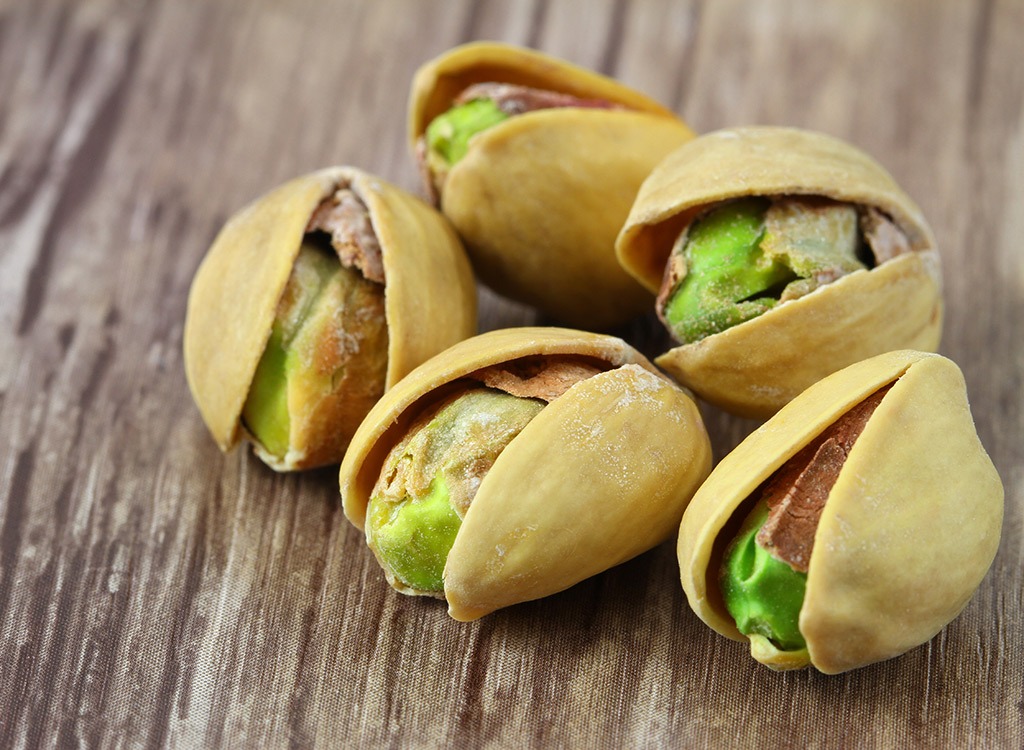
"Nuts, in addition to an overall healthy diet, have been shown to reduce the risk of coronary heart disease. Studies have also shown that pistachios can help to improve blood lipid levels, lowering 'bad' LDL cholesterol and raising 'good' HDL cholesterol," says Mia Zarlengo, MS, RD. "Pistachios are filling due to the protein and fat content, and will not cause a big spike in blood sugar levels that can occur from processed snacks."
Sip Green Tea
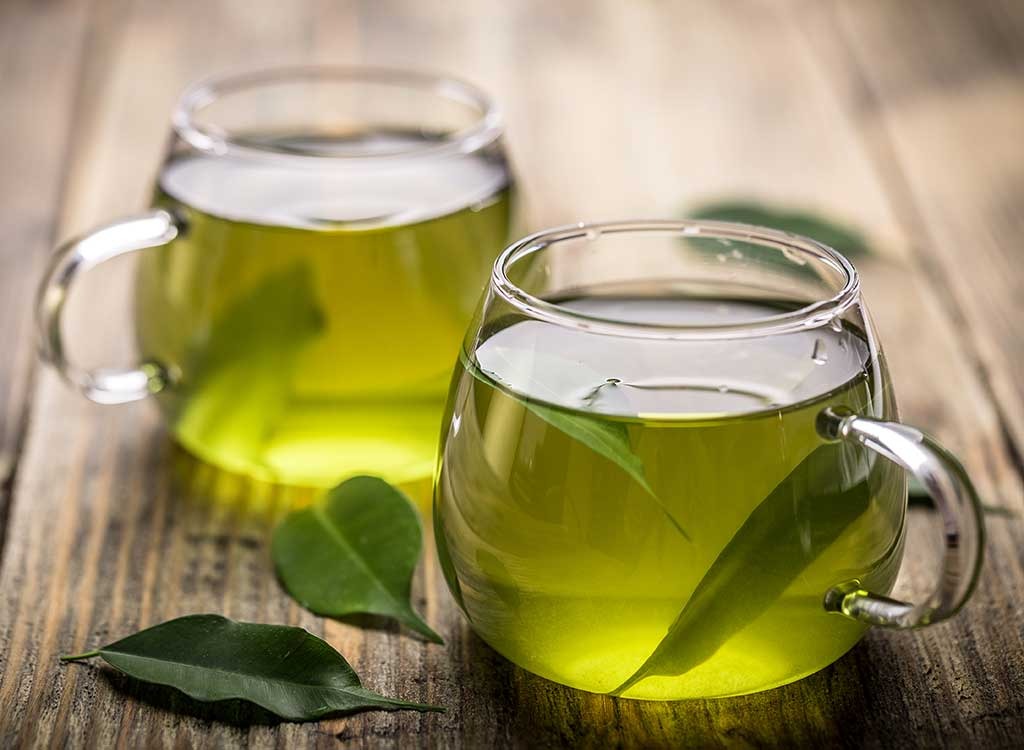
Green tea is known for its health benefits, including a decreased risk of heart attack and stroke and better immune system function. It's also rich in catechins, which act as an antioxidant and helps lower inflammation. In fact, according to a recent study, regular green tea drinkers had a 29 percent lower risk of cardiovascular disease.
Steam Your Kale
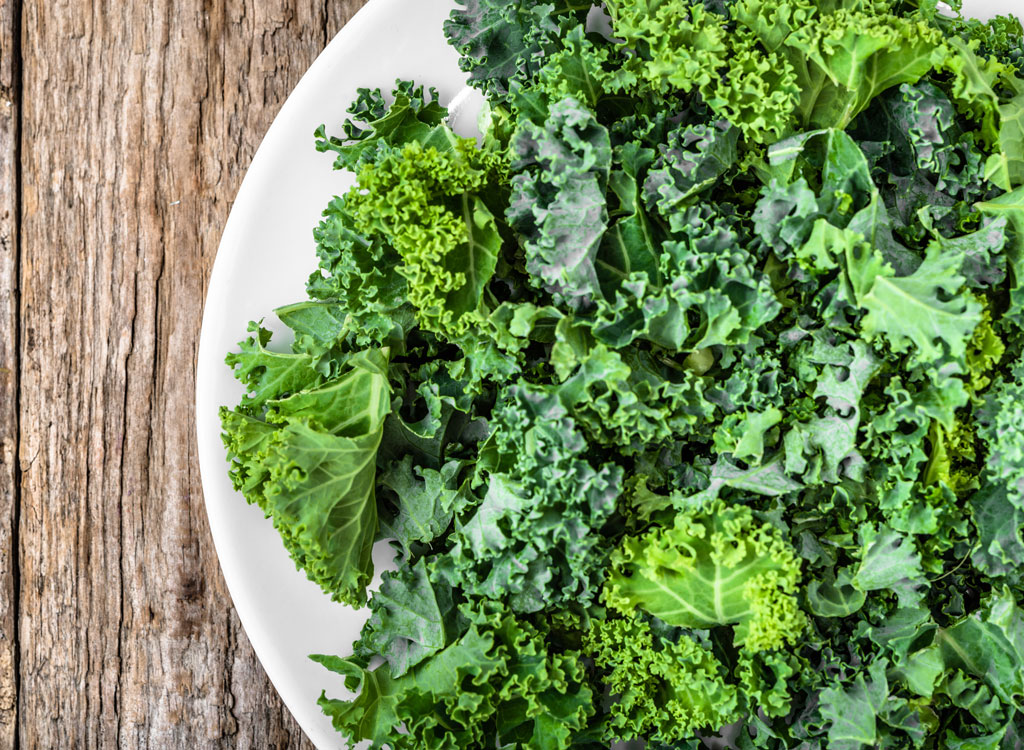
You know that kale is a nutrient powerhouse, but here's another reason to love it—it can help lower cholesterol. That's because the leafy green contains special compounds that prevent fat and cholesterol from being reabsorbed by the body. Researchers found that steaming kale increases this effect.
Up Your Pasta Game
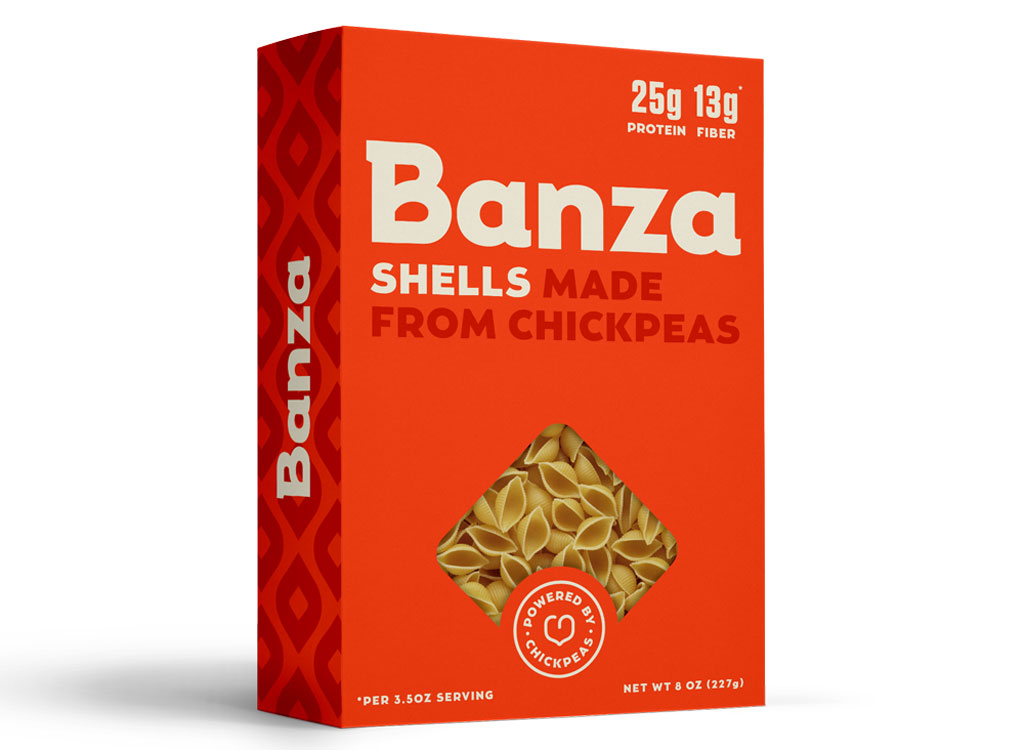
Get more bang from your pasta by switching to a plant-based pasta made from chickpeas. "The amino acids in beans may help replete healthy cells in the body, which can help stave off disease, improve heart health, and reduce inflammation," says Tracy Lockwood Beckerman, MS, RD, CDN. One she likes: Banza, which is made from chickpeas and packs in high quantities of protein. "It's low in sodium, which can help protect against the development of high blood pressure, a condition that is known to negatively impact heart health," she says.
Indulge Your Avocado Obsession
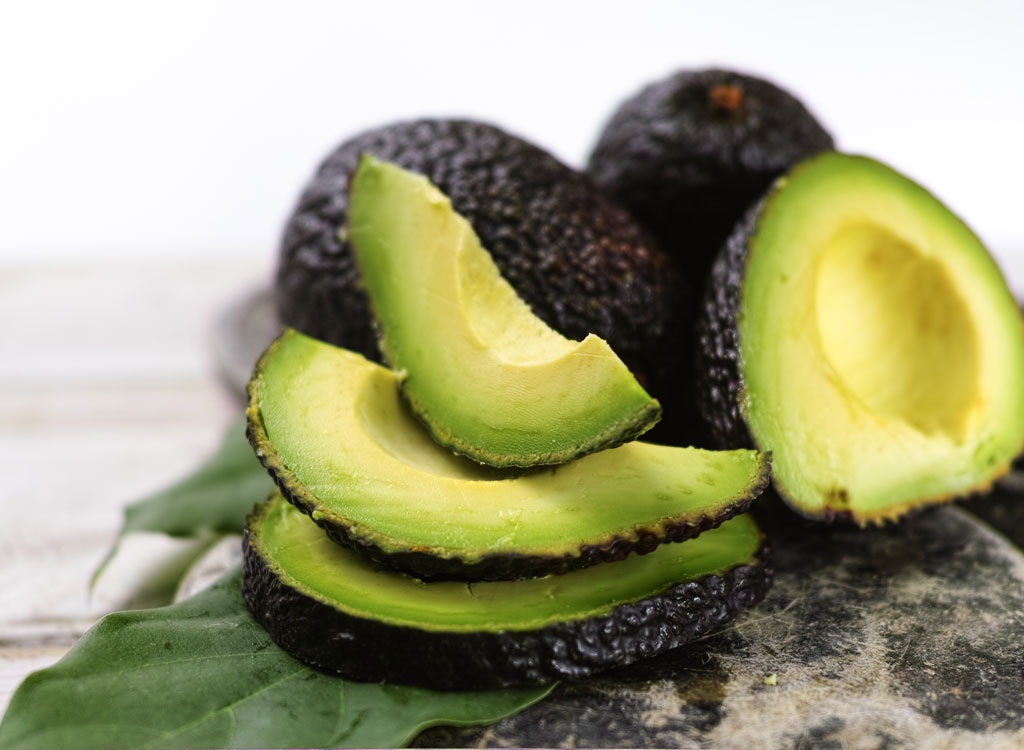
A recent study found that regularly eating avocado helped improve cholesterol, increasing levels of HDL cholesterol (the good kind), and lowering levels of LDL cholesterol (the bad kind). Avocado toast, anyone?
Rethink Your Croutons

You may love the crunch of croutons in your salad, but those little morsels of toasted bread aren't the healthiest. Try walnuts or pecans instead, says Marisa Moore, MBA, RDN, LD. You'll get the satisfying crunch, in addition to healthy fat, protein, and fiber. Plus, research shows that regularly eating nuts each day, along with a diet low in saturated fat and cholesterol, may lower the risk of heart disease.
Swap Breadcrumbs for Crushed Nuts
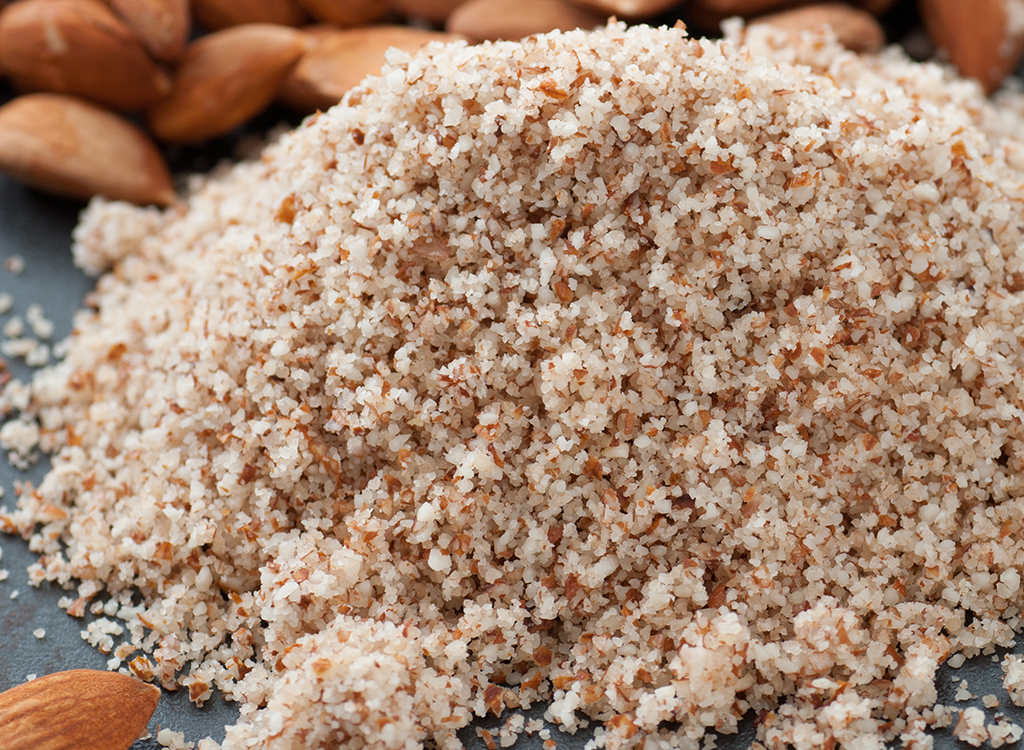
"Instead of breading your chicken or fish with breadcrumbs, try using crushed walnuts or pistachios to increase the heart-healthy fat and fiber content of your protein choice," which can help decrease inflammation at the cellular level, says Goodson. "Plus, it adds more flavor and requires less oil."
Add Some Spice

While you may recognize turmeric for its golden hue, its superpower comes from curcumin, a natural anti-inflammatory. Studies have found that curcumin decrease levels of tumor necrosis factor-α in the blood, which ignites inflammation in the body (which can increase the risk of cardiovascular disease). Try sprinkling turmeric on roasted vegetables or stews.
Eat Your Yolks
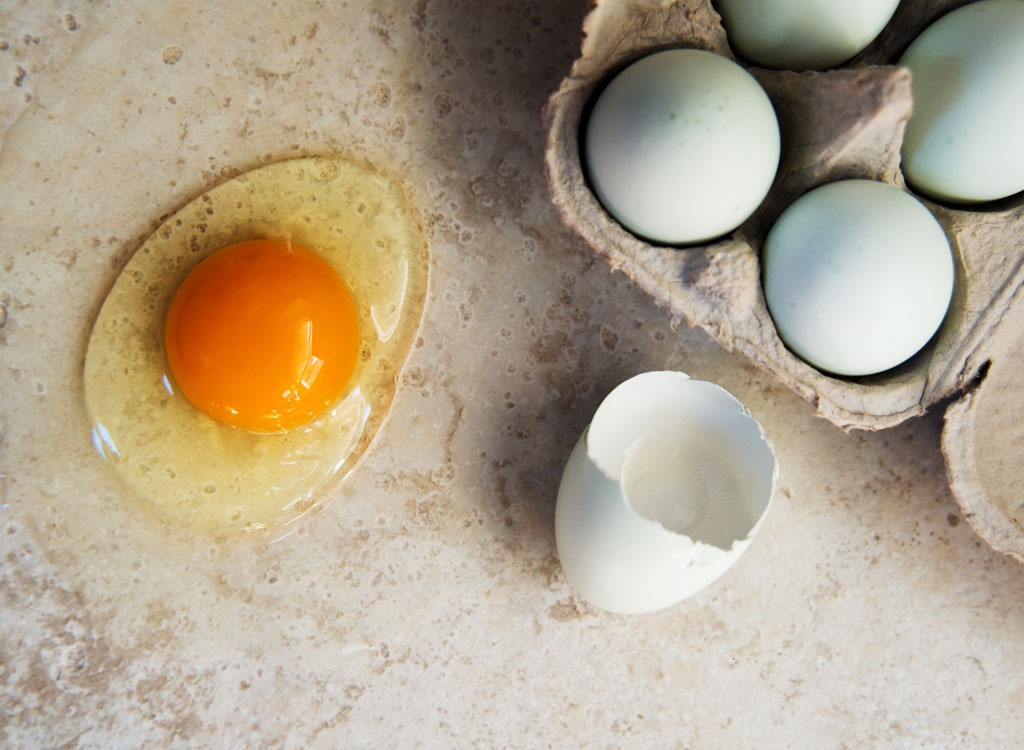
Egg yolks have long been associated with high cholesterol—but that's changing. They've done a total 180 now. "They're a source of healthy fat, vitamin D, and choline, and they can raise your good cholesterol," says Anne Danahy, RDN, a Scottsdale-based registered dietitian.
Read Nutrition Labels
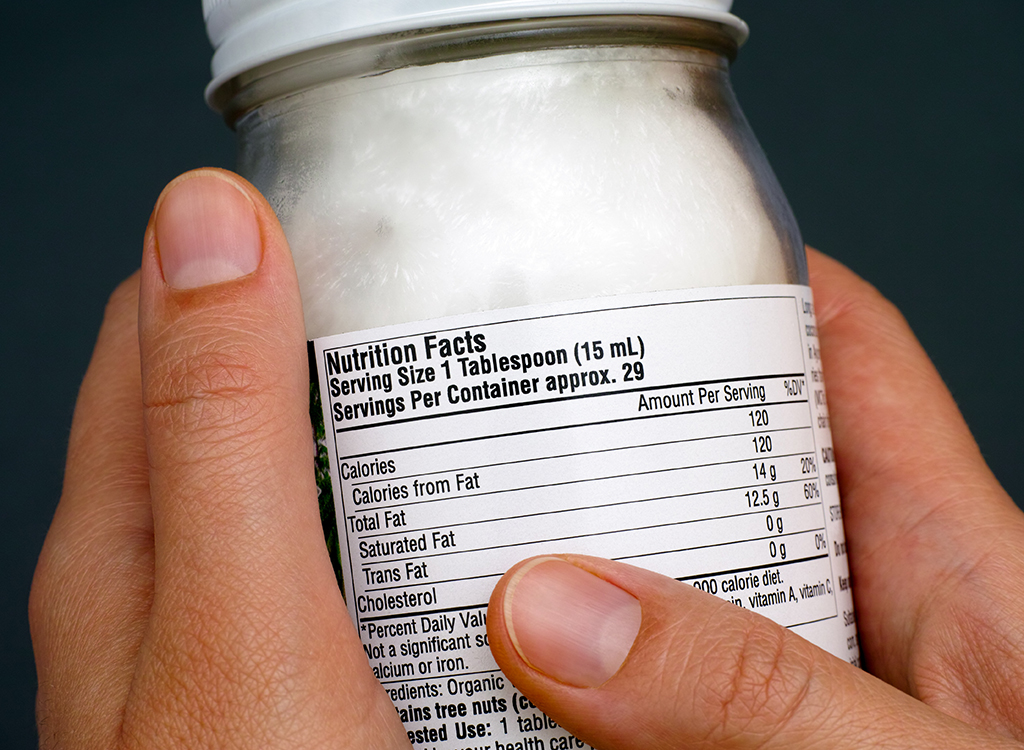
Sugar seems to be hiding everywhere in our food. "You would be amazed at the sugar lurking in foods such as fruit juice, granola bars, cereals, sauce, salad dressing, low-fat yogurt, spaghetti sauce, jams and jellies," says Colette Heimowitz, M.Sc., author of Atkins: Eat Right, Not Less. "With chronic exposure to excess sugar, eventually it can lead to metabolic syndrome (obesity, high blood pressure, and insulin resistance), diabetes, heart disease, and more."
Upgrade Your Sandwich Spread
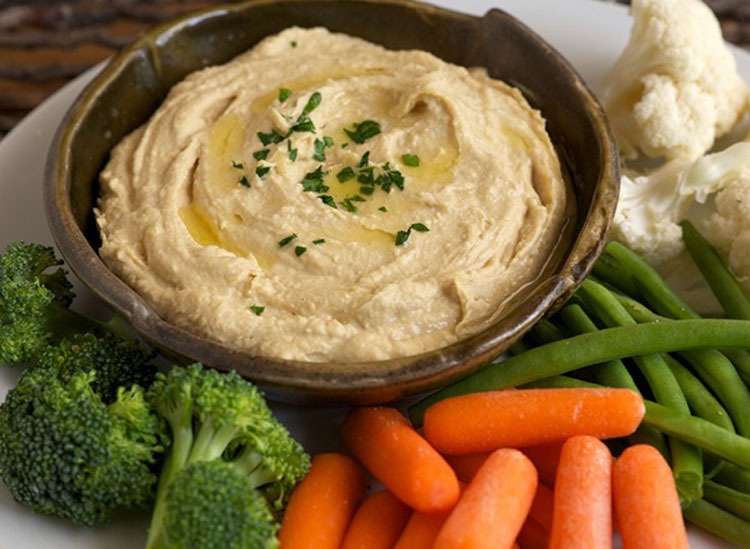
Can't eat a sandwich without some mayo? Try hummus instead, says Moore. A study in the journal Nutrients found that eating hummus can help ward off the development and progression of cardiovascular disease.
Swap in Beet Juice
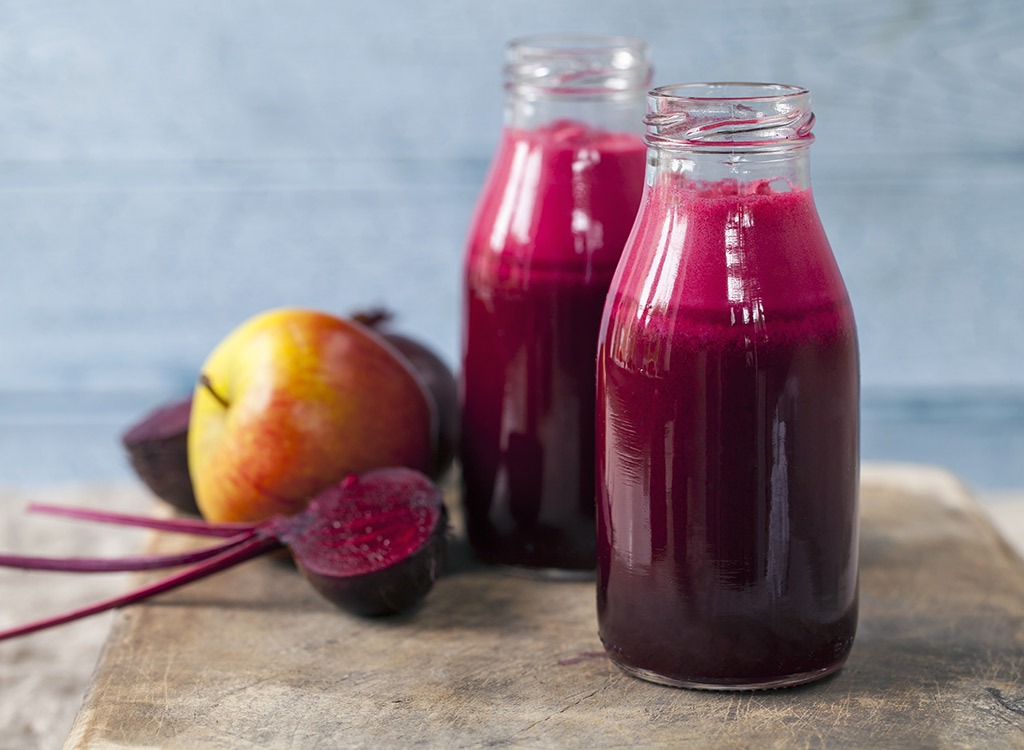
A study in the Journal of Nutrition found that downing a glass of beet juice decreased systolic blood pressure. High blood pressure is linked to heart attack and heart failure. Researchers believe that the nitrates found in beets, which naturally relax your blood vessels, improve the flow of blood and lower blood pressure.
Replace Refined Carbs
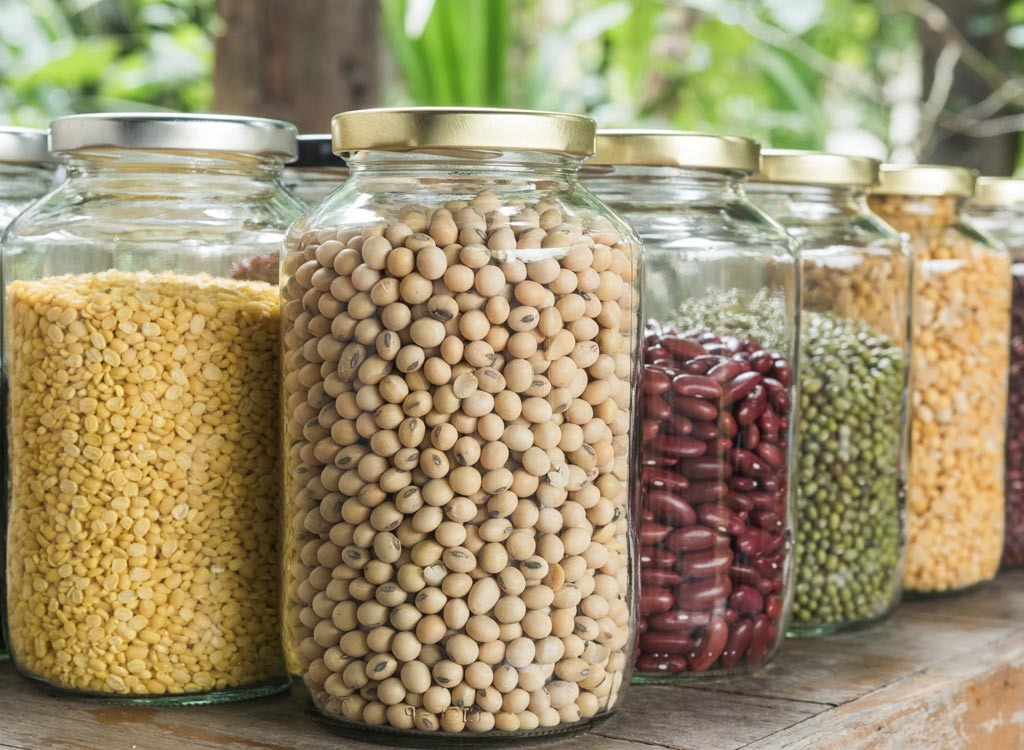
Refined carbs might actually be worse for your heart health than most types of fat. Yikes! "People who eat lots of refined carbs tend to have small, dense LDL (bad cholesterol) particles, which can block your arteries and cause inflammation more than the large LDL particles associated with fat from meats and dairy," says Danahy. Instead, stick with less processed, high-fiber foods like whole grains, veggies, and beans.
Don't Shun Full-Fat Dairy

While full-fat dairy has gotten a bad rap, a recent study in the American Journal of Clinical Nutrition suggests otherwise. Researchers from The University of Texas Health Science Center at Houston looked at fatty acids associated with heart disease and all-cause mortality over a 22-year period and found that consuming full-fat dairy like milk, yogurt, and butter did not increase the risk of cardiovascular disease. So go ahead and indulge!
Start Your Day With Oats
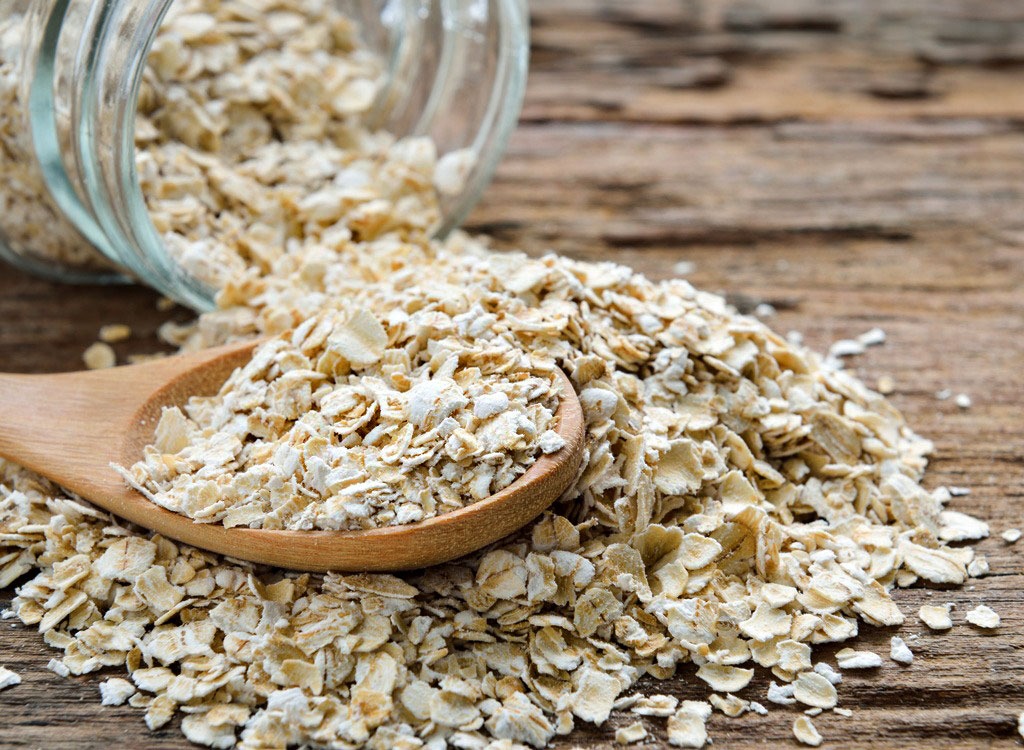
Oats have long had a heart-healthy reputation, thanks to their high-fiber content, especially soluble fiber. "Soluble fiber can bind to cholesterol and excrete out of the body with it. Thus, eating soluble fiber regularly can almost work like medicine to keep cholesterol levels low," says Goodson. You'll want to serve up a bowl of oatmeal or overnight oats for breakfast.
Cook With Olive Oil
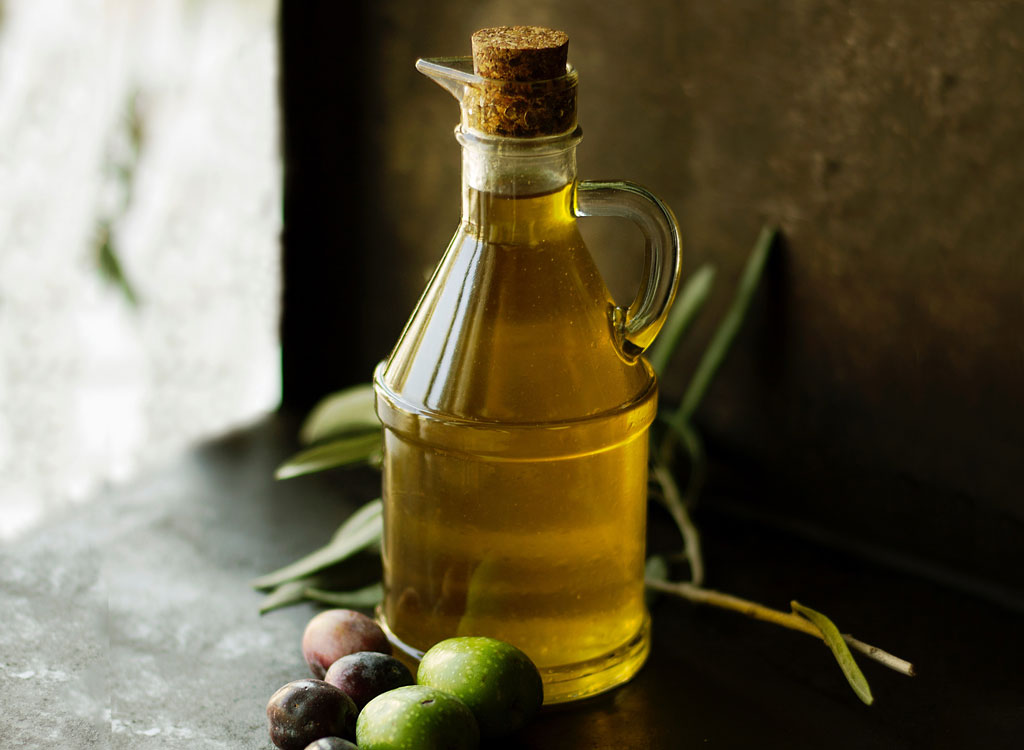
You know that olive oil is part of a healthy Mediterranean Diet, and it's one of the best healthy fats. "Diets that include high-quality extra virgin olive oil are associated with a decreased risk of multiple diseases, including cardiovascular disease. Real, high-quality extra virgin olive oil is high in monounsaturated fatty acids and other anti-inflammatory compounds that are known to benefit the health of our heart and brains, making it a great staple," says Zarlengo.
Pile On The Garlic

Not only is garlic effective at warding off vampires, but it can lower your risk for heart disease, too. Studies have found that the little cloves can help reduce blood pressure and improve total cholesterol by lowering the "bad" LDL kind.
Swap Chips For Nuts
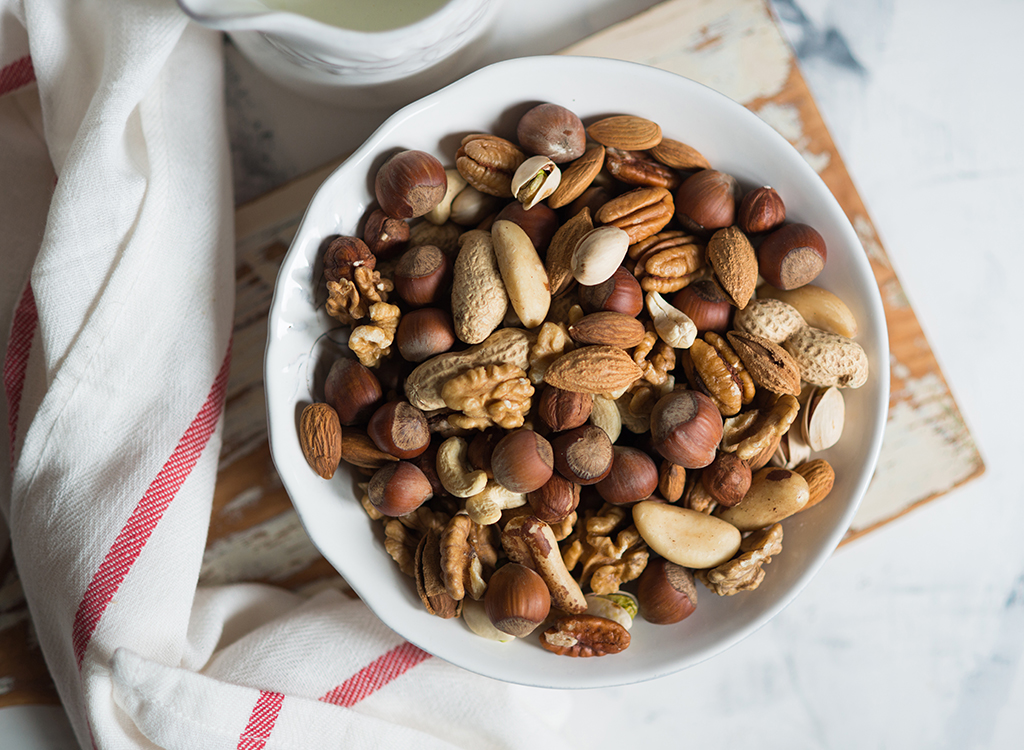
If you're itching for a snack, skip the chips and grab a handful of nuts. "Nuts contain different mixes of good fats and help you avoid grabbing those bad fats or trans fats that are often used in packaged goods," says Heimowitz. "Because the body can't break them down, trans fats (or bad fats) attach to the arteries and may result in plaque formation, which can be linked to heart disease, diabetes, breast cancer, and asthma, as well as other illnesses."
Load Up On Black Beans
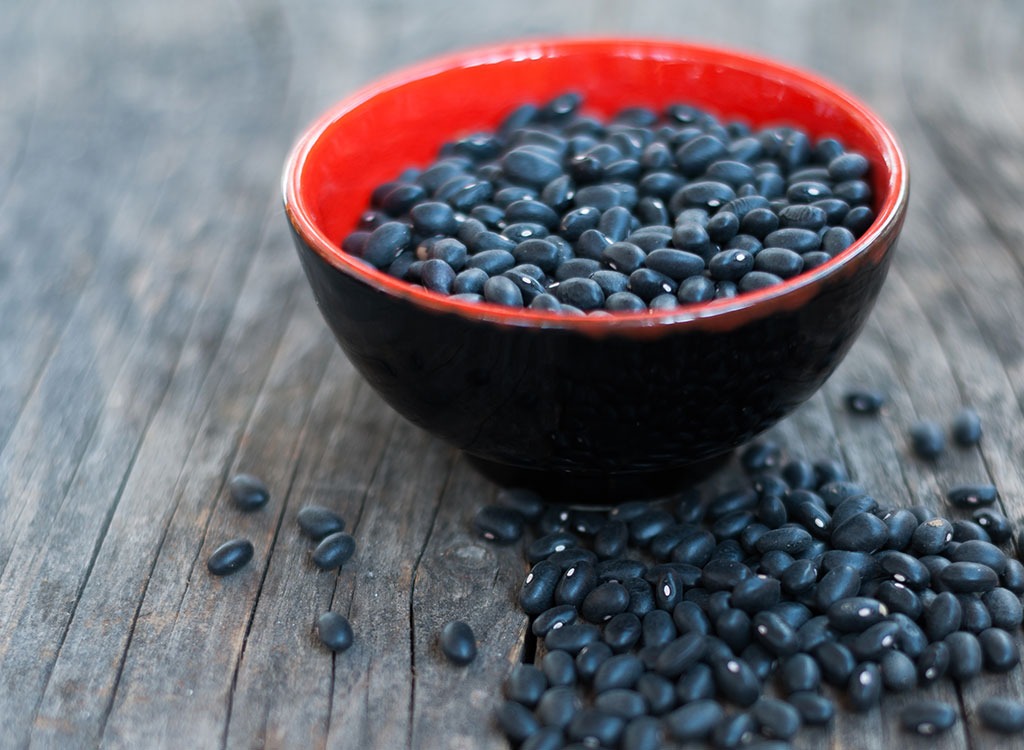
Not only are black beans packed with protein and fiber, but they also contain saponins, a phytochemical that research has found to help move cholesterol out of your body. Try adding beans to your salsa for a heart-healthy snack.
Skip The Rice

Cook up some barley instead! "Barley is one of my favorite grains because it's full of cholesterol-lowering soluble fiber. It adds a nice, chewy, nuttiness to soups and stews, and works perfectly as a side dish," says Danahy.
Put Away The Salt Shaker
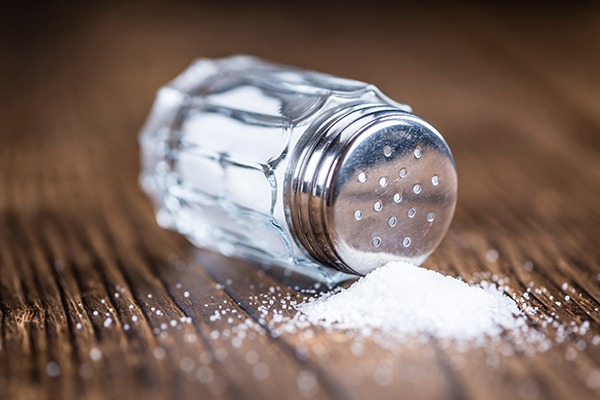
According to a study in the New England Journal of Medicine, reducing the intake of salt to half a teaspoon a day would significantly chop the number of cases of coronary heart disease. Not only watch how much salt you add to your food, but check the sodium content of packaged foods and restaurant meals, too.
Focus On Plant-Based Protein
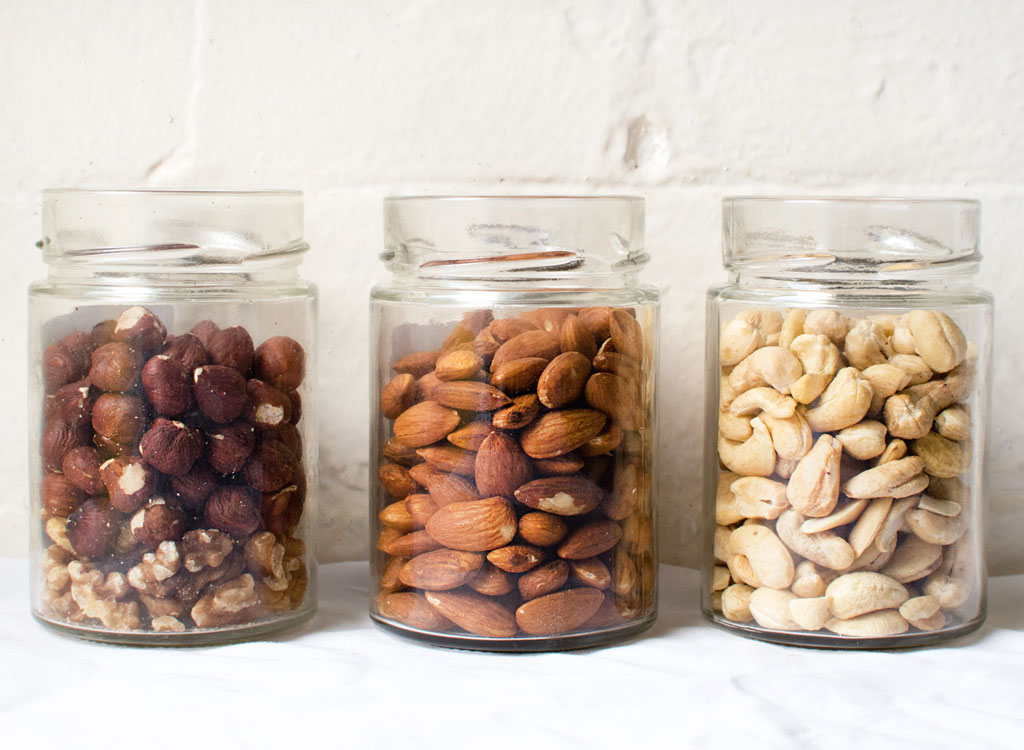
A recent study in American Journal of Clinical Nutrition found that people who regularly ate nuts had lower levels of inflammatory markers like C-reactive protein and interleukin-6, predictors of future cardiovascular disease. Researchers believe it's due to the unsaturated fat, fiber, and antioxidants. One easy switch? Swap out meat for heart-healthy nuts. "Chopped and toasted walnuts or pecans also make for a delicious meat substitute in tacos, and can be added to soups and chili for extra heartiness," says Moore. "If you haven't tried this one, definitely give it a go!"
Don't Overlook Your Condiments
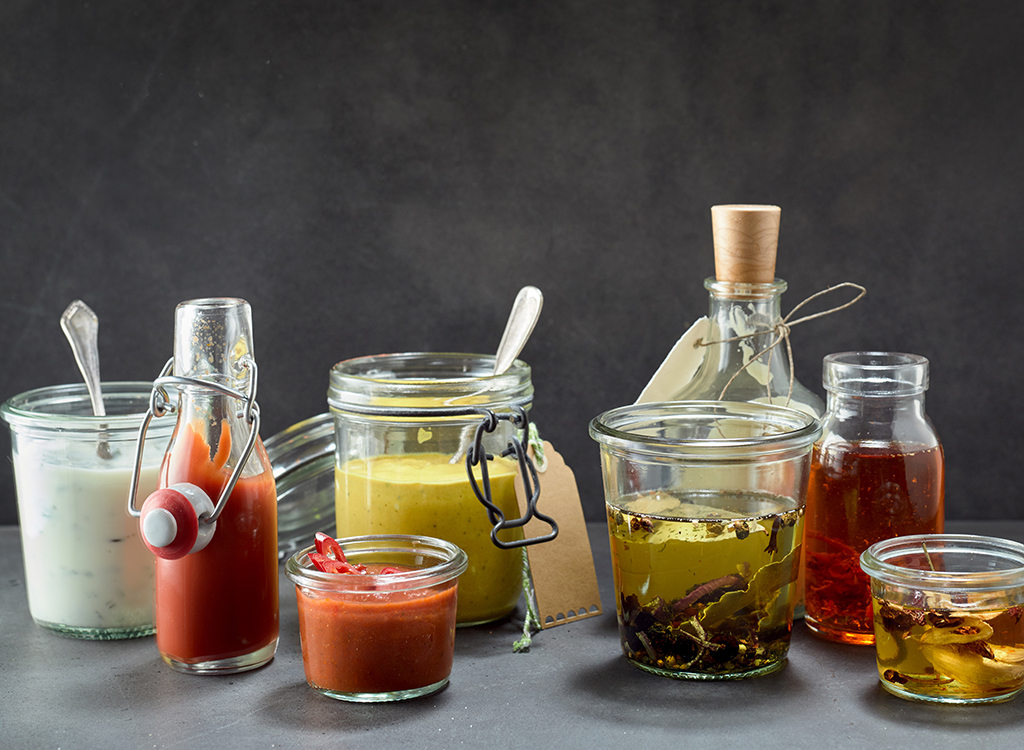
Want to add heart-healthy flavor to your meal? Stock up on condiments like salsa, hot sauce, mustard, pesto, lemon or lime juice, and soy sauce or tamari, says Heimowitz. But make sure to watch the sugar content. "When you eat a food that contains sugar, it triggers the release of a brain chemical called dopamine, which makes you feel good. As the feeling wears off, you want more sugar. It begins a vicious cycle of sugar cravings, blood sugar spikes, mood swings, and weight gain," says Heimowitz.
Indulge Your Sweet Tooth, Naturally
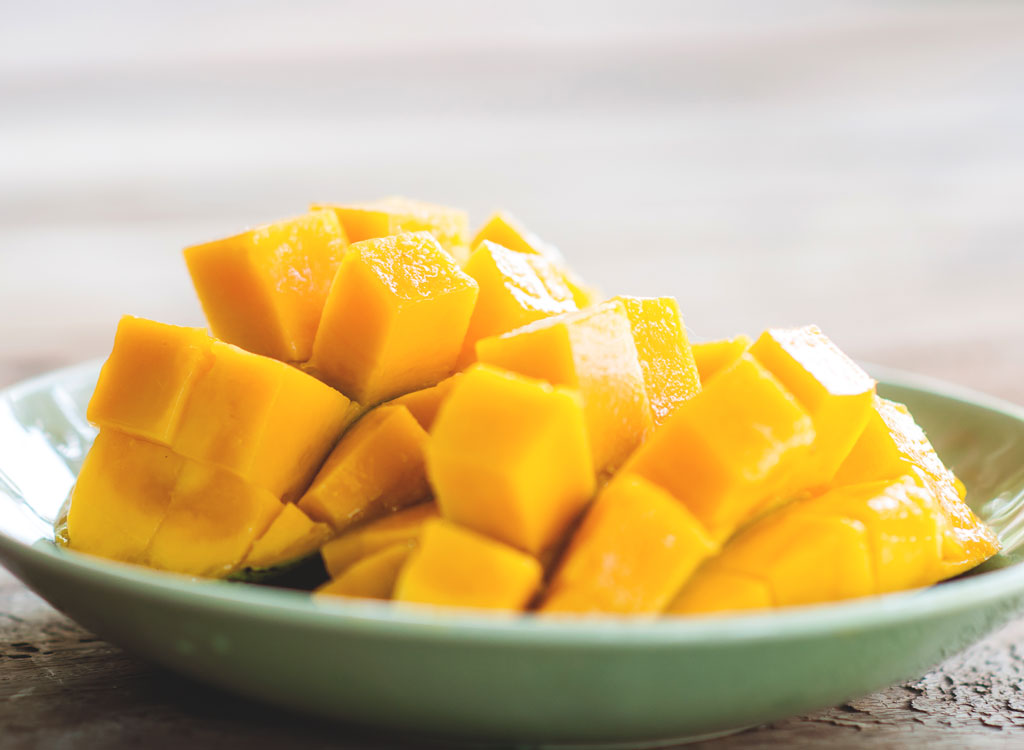
If you need something sweet, have a mango. The juicy tropical fruit is full of heart-healthy nutrients and antioxidants. One cup of mango offers 20 percent of your recommended daily folate requirements, a nutrient that supports healthy cardiovascular function. Chinese researchers have also found that mangiferin, a phenolic compound found in mango, may help decrease triclyceride and free fatty acids in the blood.
Say Yes to Edamame
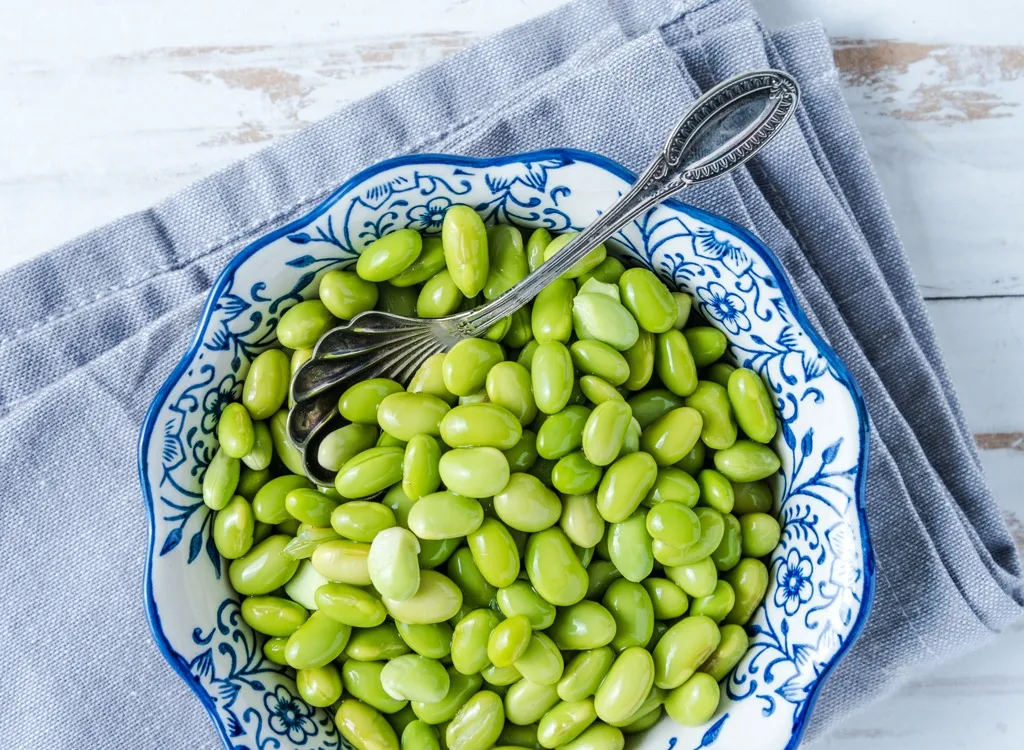
These Japanese soybeans aren't just a good pre-sushi app. They're rich in polyunsaturated fats, too. "[These fats] specifically can help lower triglycerides and boost HDL (your good cholesterol). Both things help protect your heart from potential heart disease," says Goodson.
Cut The Saturated Fat
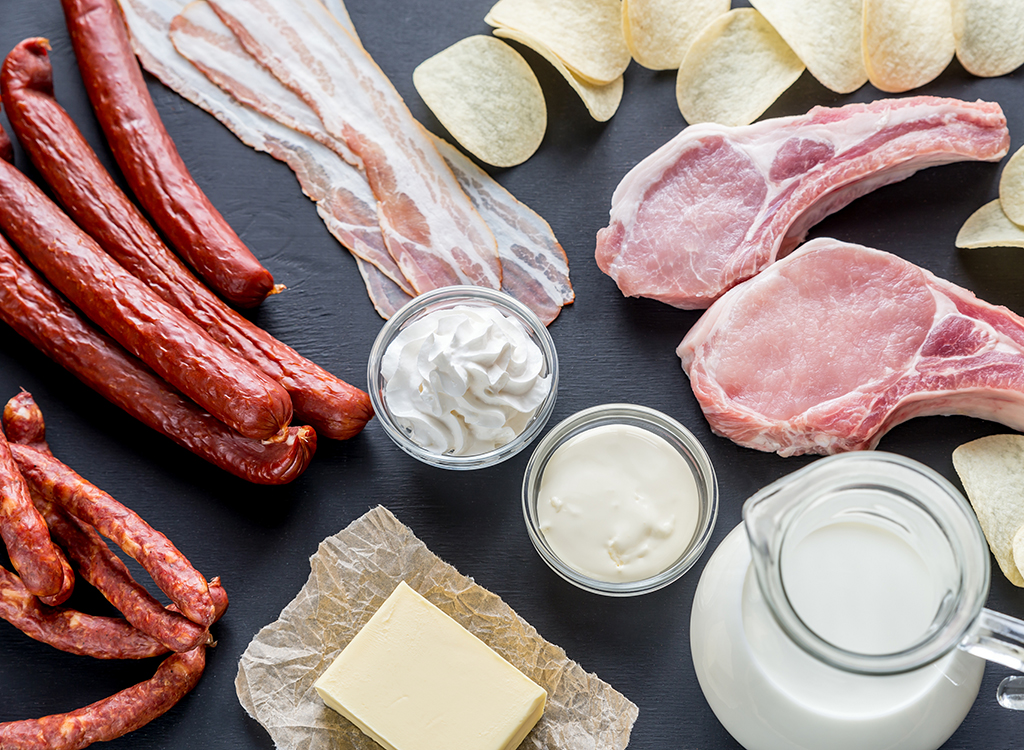
Not all fats are created equal. Slashing your intake of saturated fat to five percent of your daily calorie intake and swapping in polyunsaturated and monounsaturated fats can decease your risk of cardiovascular disease, according to the USDA.
Top It Off With Some Berries

These little bundles of sweetness are full of phytonutrients like anthocyanins. Researchers have found that people who ate 35 mg of anthocyanin-rich foods on the reg had 18 percent lower levels of C-reactive protein—a biomarker for inflammation in the body and predictor of cardiovascular disease. Add some berries to your morning oatmeal or smoothie for a heart-healthy boost.
Cool Your Potatoes
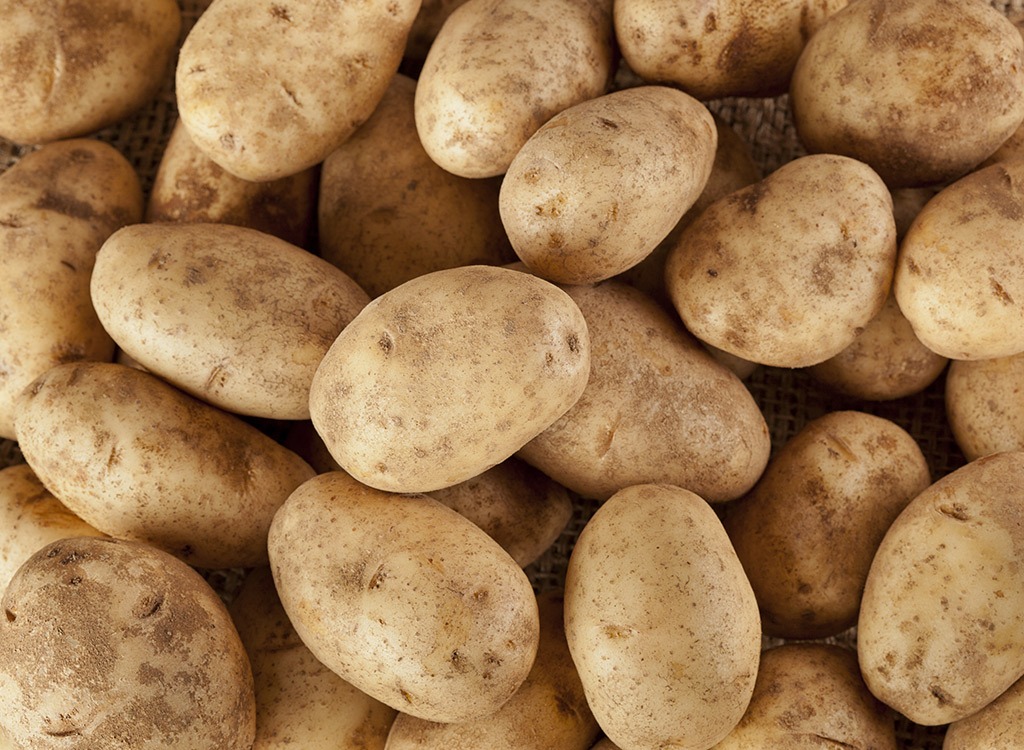
Not all starch is bad. In fact, resistant starch is a special form that isn't broken down by your digestive tract and acts like soluble fiber. A recent study found people who regularly consumed resistant starch improved their cholesterol profile after 12 weeks. While cooking typically destroys resistant starch in foods like pasta and potatoes, cooling your food allows resistant starch to reform.
Nosh On Grapes
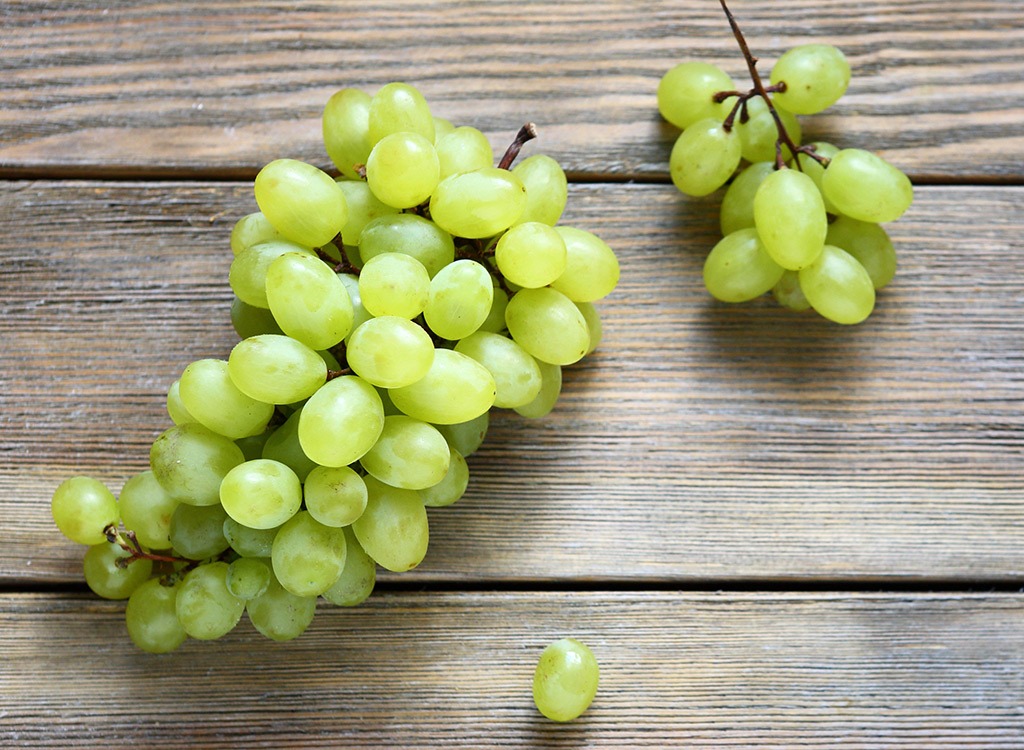
If you're looking for a sweet snack, grab some grapes. "Grapes may support a healthy heart by promoting relaxation of blood vessels for healthy blood flow and function," says Moore. "Heart-healthy grapes are great on their own—just wash and add them to your fall or holiday table. Snack on them fresh, or add grapes to all kinds of recipes from salads, salsas, smoothies, and even sweet and savory appetizers."
Fortify With Vitamin D

This essential nutrient isn't just good for bone health. Researchers in Brazil have found that postmenopausal women who were vitamin D deficient were more likely to have Metabolic Syndrome, a cluster a risk factors that increases your risk for cardiovascular disease by two-fold. Other studies have found that higher levels of vitamin D are associated with a 33 percent lower risk for cardiovascular disease. Look for vitamin D-fortified dairy products at the grocery store.
Restock Your Freezer
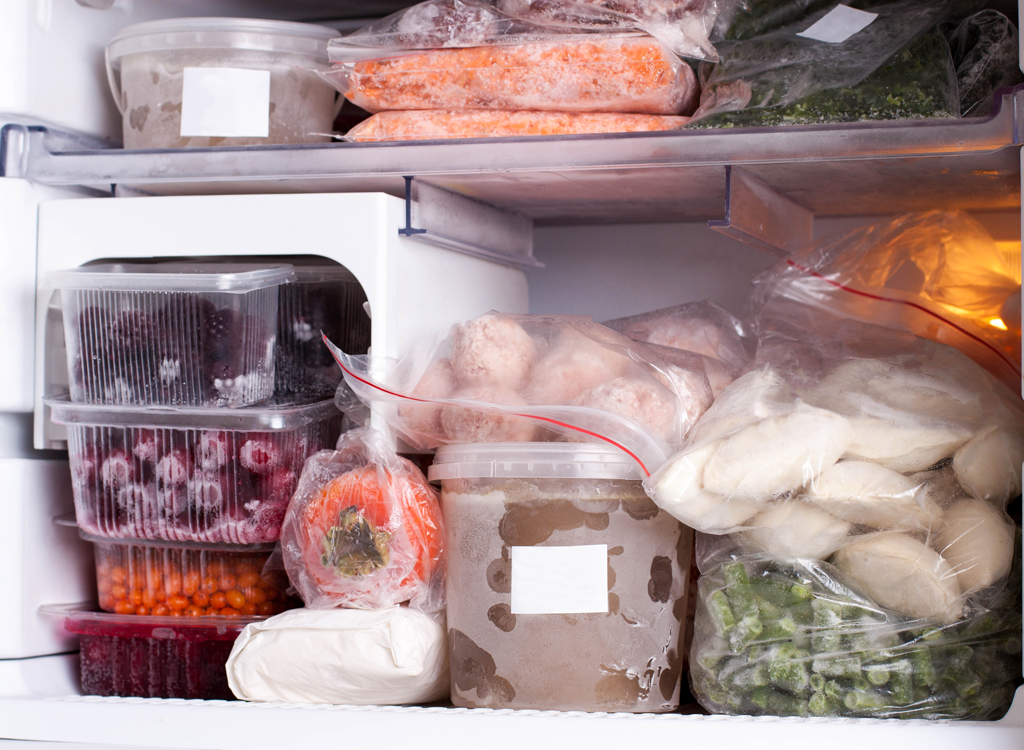
While the freezer may be a holding zone for just-in-case, no-time-to-cook foods like pizza and chicken nuggets, it's time to rethink your frozen foods. Many convenience meals are full of extra sugar, sodium, and unhealthy fats. Heimowitz suggests stocking up on frozen broccoli, cauliflower, bell pepper, and spinach so you always have some colorful, fiber-rich veggies ready to go.
Hide Your Veggies in Foods You Love
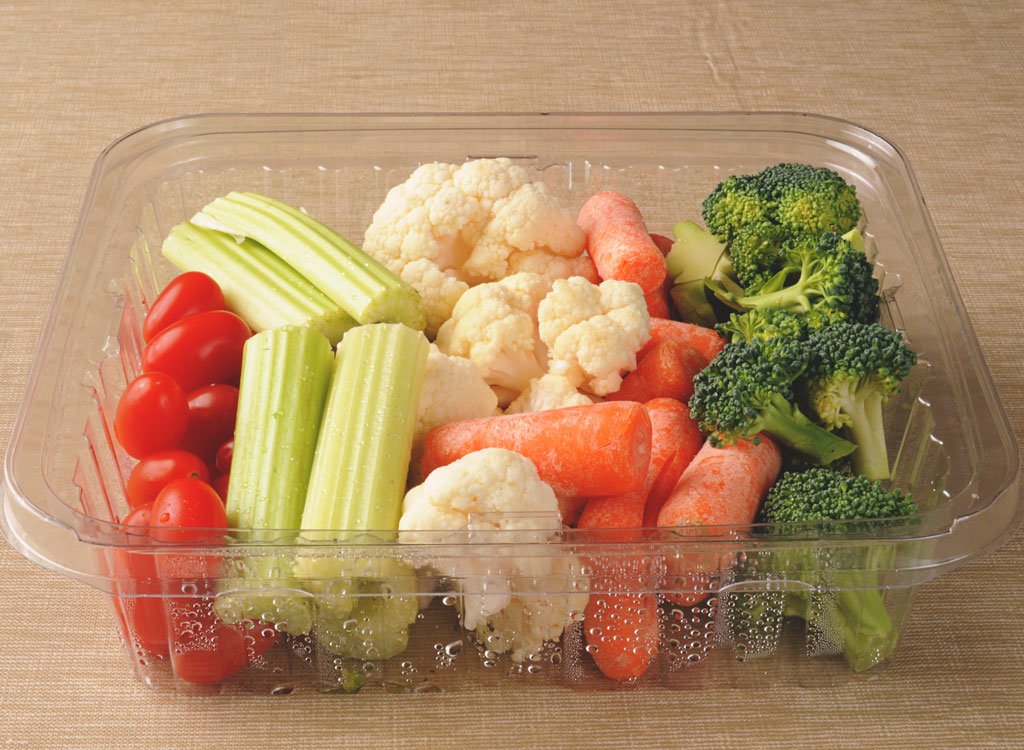
You know that fiber can help lower cholesterol and is good for your heart, but if you're having trouble hitting your fiber goals, it's time to get sneaky. Puree cooked vegetables (like sweet potatoes or cauliflower) in your food processor, and add them to pasta sauce and stews.
Go Crazy For Hemp
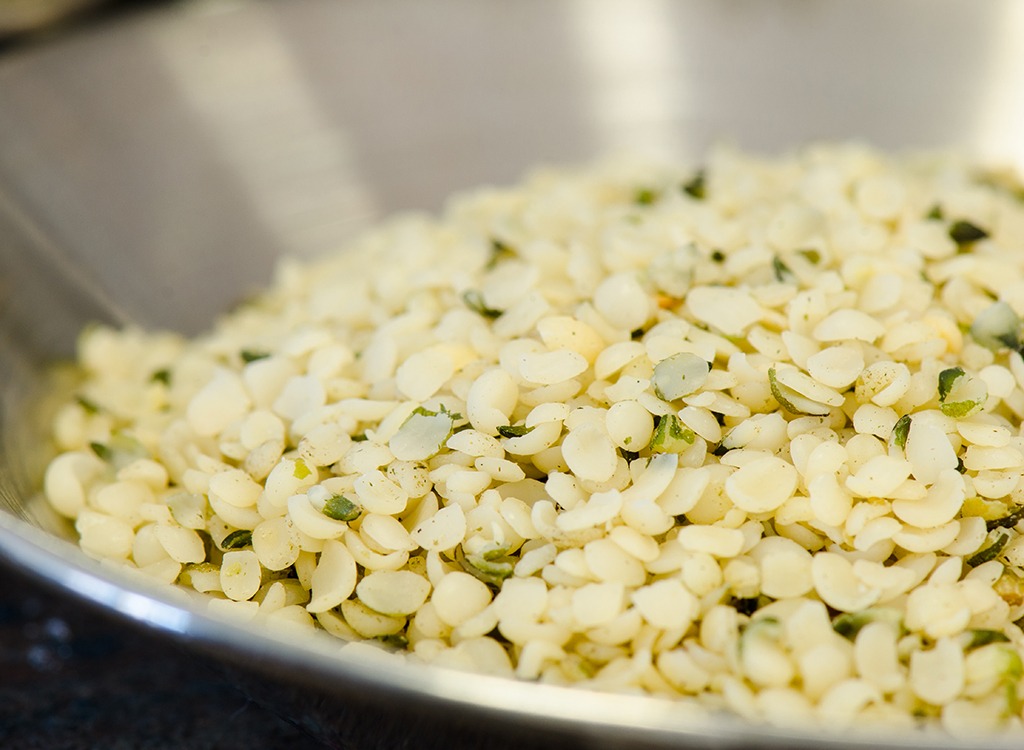
Hemp seeds, that is. "They're easier to digest than flaxseeds, and actually provide more healthy omega-3 fats, more fiber, and a good dose of protein," says Danahy. Sprinkle some on your salad, oatmeal, or smoothie.
Don't Strain The Pulp

A fan of fresh-squeezed orange juice? Researchers believe that OJ's rich antioxidant content may stave off the development of atherosclerosis. Plus, another study found that regularly drinking orange juice lowered blood pressure. And don't dump the pulp! It contains pectin, a soluble fiber that can help lower cholesterol levels.
Rethink Your Hydration Game

Sugar-sweetened beverages like soda, sports drinks, and sweetened teas have been in the headlines because of their high added sugar content. Not only are these drinks full of empty calories, but they can also increase your triglyceride levels, which may lead to the hardening of your arteries and, down the line, heart disease. The American Heart Association recommends limiting daily added sugar to 100 calories for women and 150 calories for men. Stick with plain water (sparkling is OK, too!), or add some fruit or herbs for natural flavor.
Supercharge Your Calcium Supplement
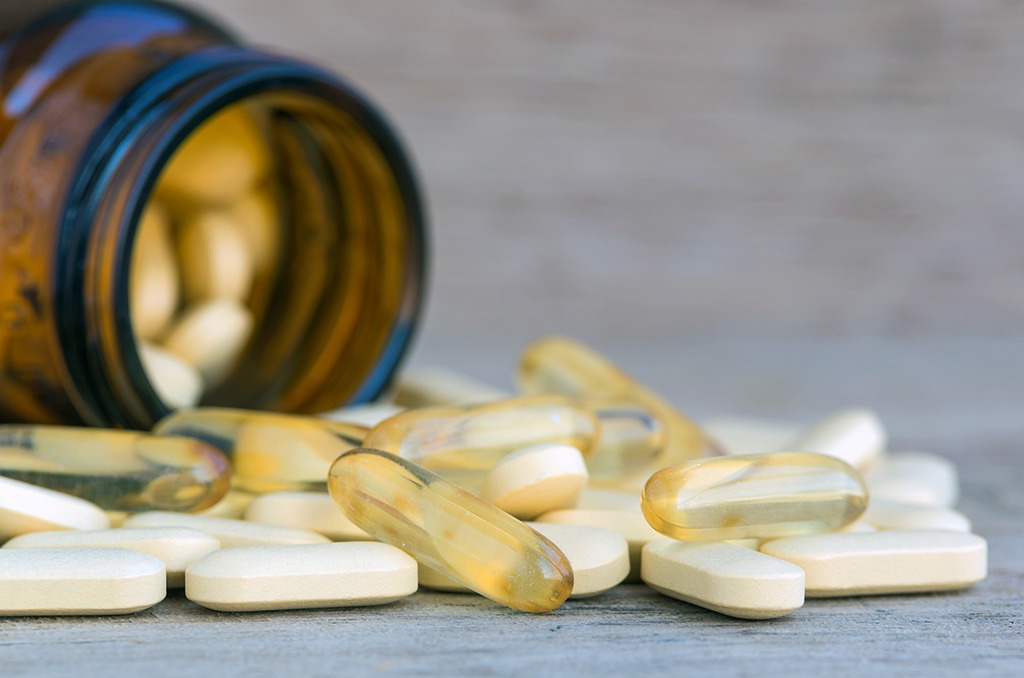
For women who take a calcium supplement, Danahy recommends adding a vitamin K2 supplement, too. "Vitamin K2 helps calcium get out of your blood and into your bones," she says. "Too much calcium from supplements can increase your risk of heart disease by building up in your arteries."
Have An After-Dinner Chocolate
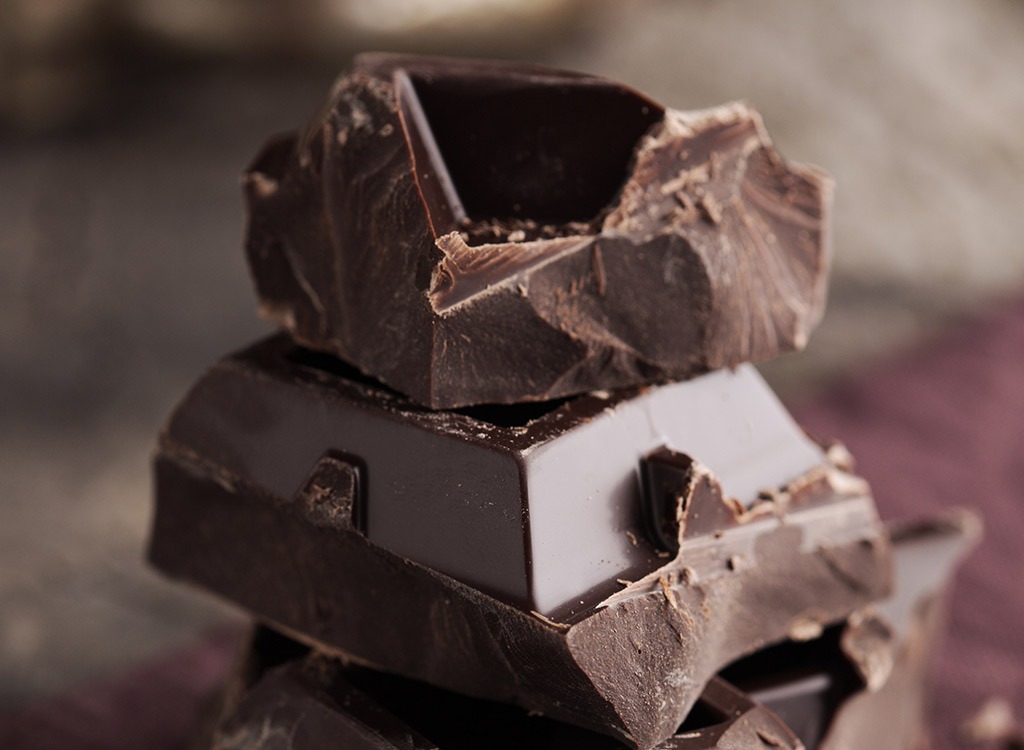
We admit, we like a square of dark chocolate at night, and now you don't have to feel guilty. A study published in the American Journal of Clinical Nutrition found that chocolate may help to improve blood flow and lower blood pressure, which means your heart doesn't have to work as hard.
Make It Blue
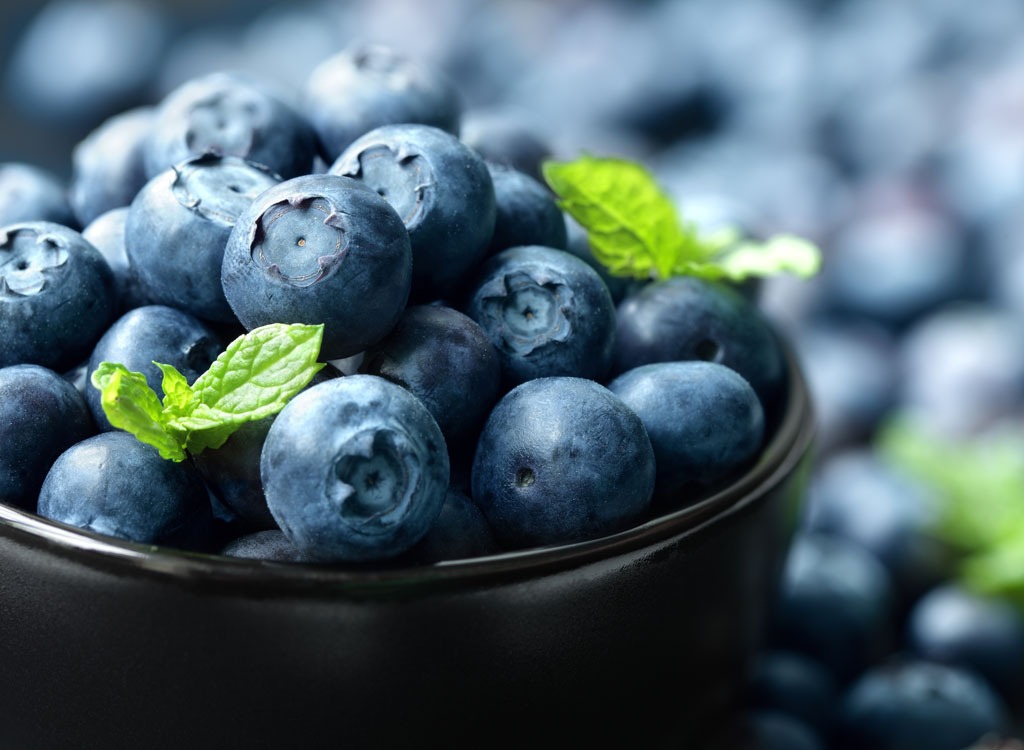
Blueberries may add an extra boost to other heart-healthy activities like exercise. One study found that regular exercise and blueberry consumption reduced triglyceride levels and increased "good" HDL-cholesterol more than exercise alone.
Get Spicy

Ginger has long been touted as a super healthy food and a staple in traditional and alternative medicine to treat nausea, colds, flu, and even menstrual pain. But researchers also point to ginger's cholesterol-lowering powers. One clinical trial found that in individuals with high cholesterol, three grams of ginger powder markedly lowered cholesterol and triglyceride levels. Don't be shy adding ginger to your tea, soups, and veggies!
Say Cha-Cha-Cha-Chia
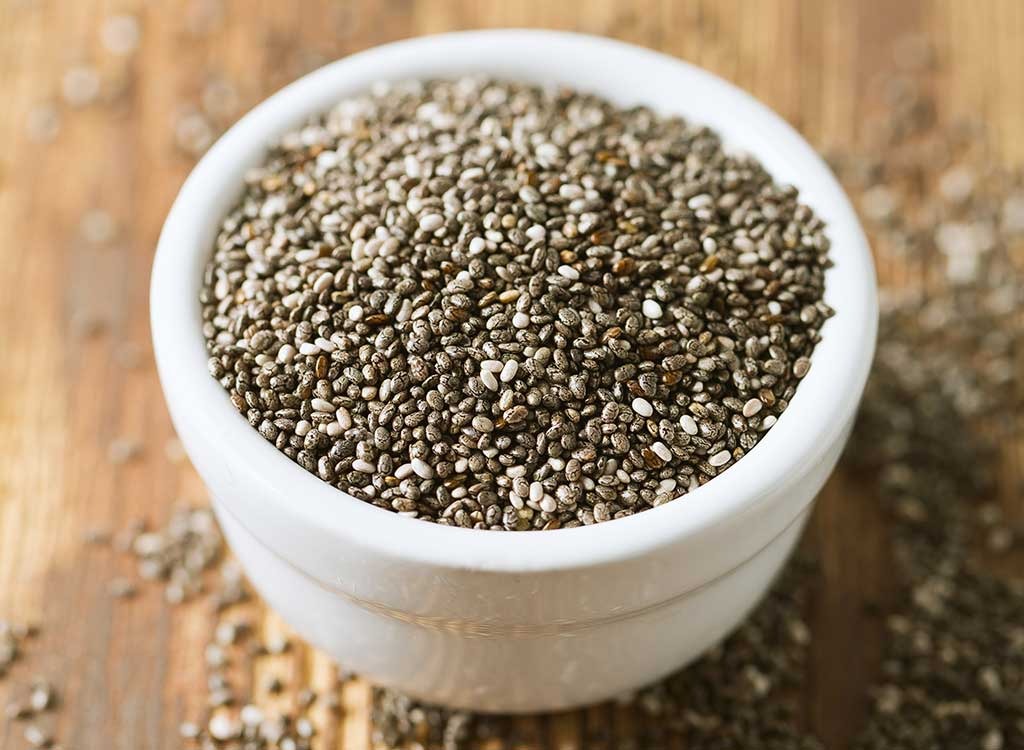
"You should aim to consume 25-38 grams of total fiber a day and make a good amount the soluble type," says Goodson. Having trouble? Add chia seeds to your diet. One ounce of chia seeds has 9 grams of healthy fats, including heart healthy omega-3 fatty acids, and 11 grams of fiber, which can help to stabilize blood sugar, keep inflammation at bay, and help your heart stay healthy.
Pour A Glass

And make it red wine. A study in the European Journal of Clinical Nutrition found that drinking a moderate amount of wine increased HDL-cholesterol levels between 11-16 percent.
Crunch On It
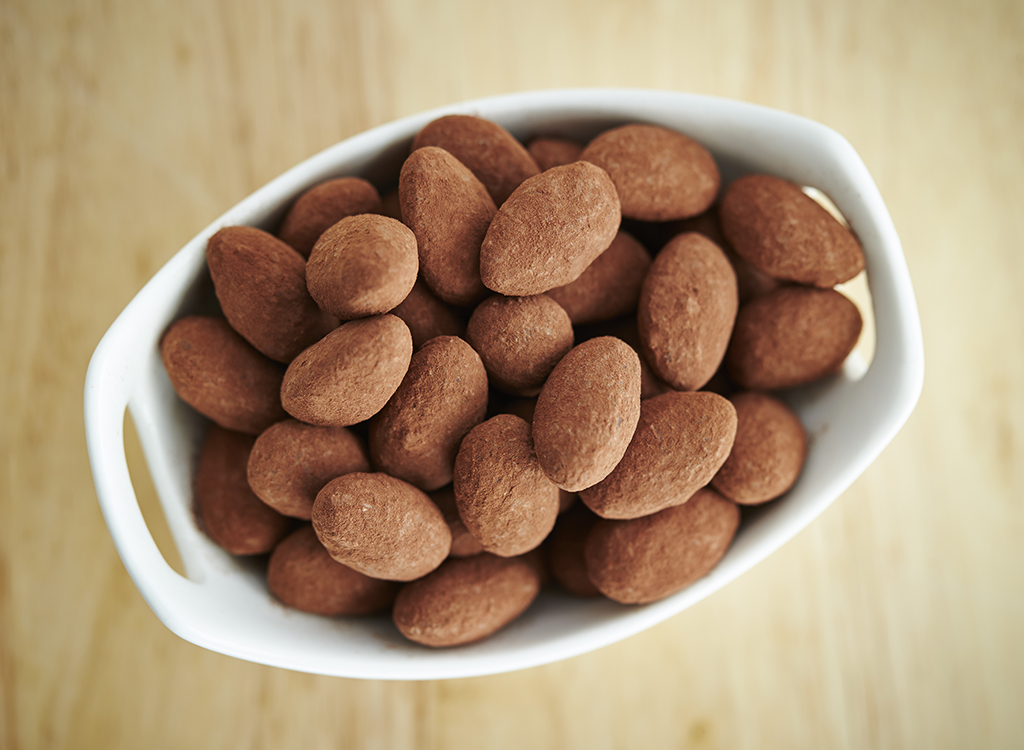
If you're in the mood to munch on something crunchy, nosh on some cocoa-dusted almonds. "Everyone will love the crunch, but almonds provide many nutrients that help support a healthy heart. And high-quality cocoa powder has been shown to help lower blood pressure levels, so this one does double duty!" says Moore.
Snack On Low-Fat Yogurt
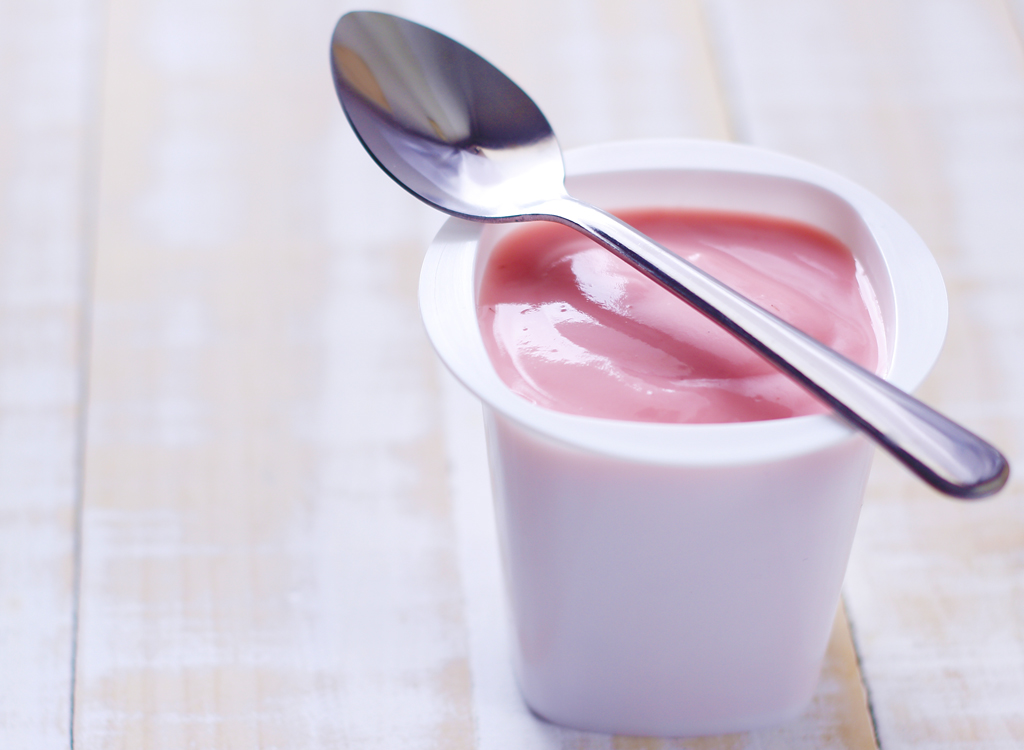
Here's another reason to add yogurt to your diet: Researchers from the University of Madison found that regularly eating 12 ounces of low-fat yogurt for nine weeks lowered measures of chronic inflammation linked to cardiovascular disease in women and improved overall gut health.
Spice It Up
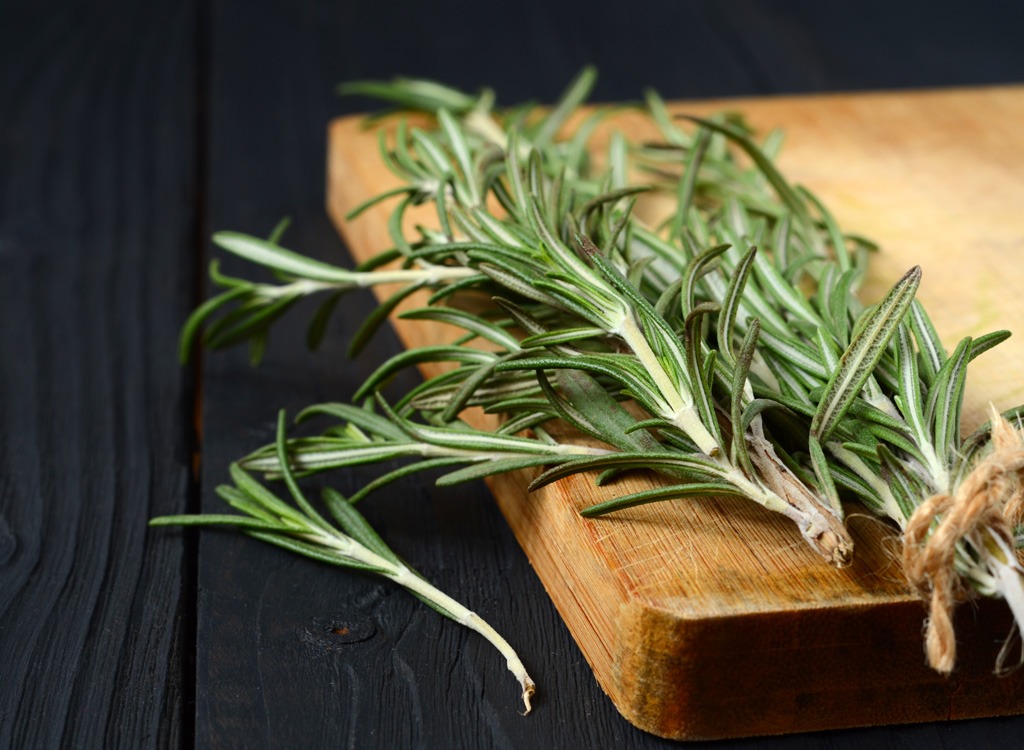
"Try flavoring and seasoning your food with herbs and spices like rosemary, clove, and basil to help reduce salt use and sodium intake. Cutting back on sodium can help lower blood pressure," says Goodson.
Skip Store-Bought Snacks
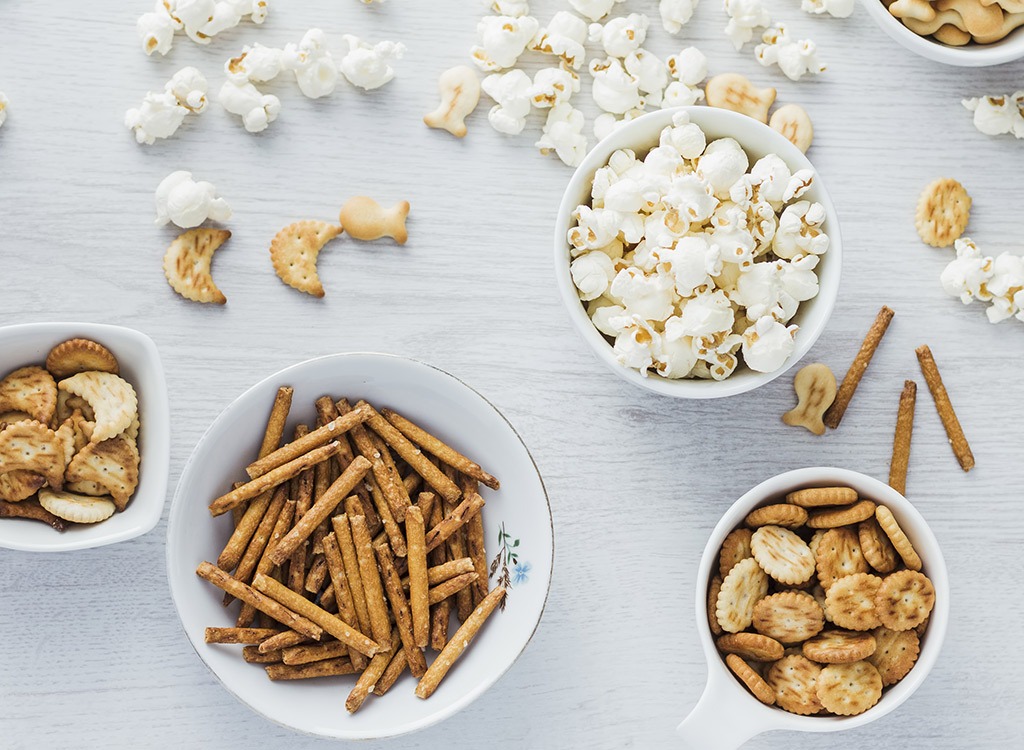
While these snacks are tasty (and convenient!), they're often made with partially hydrogenated vegetable oil or other trans fats, which can mess with your cholesterol—increasing "bad" LDL cholesterol and decreasing "good" HDL cholesterol, according to the American Heart Association. Choose foods that are trans fat-free, and stick with mono- and poly-unsaturated fats.
Stick With Whole Grain
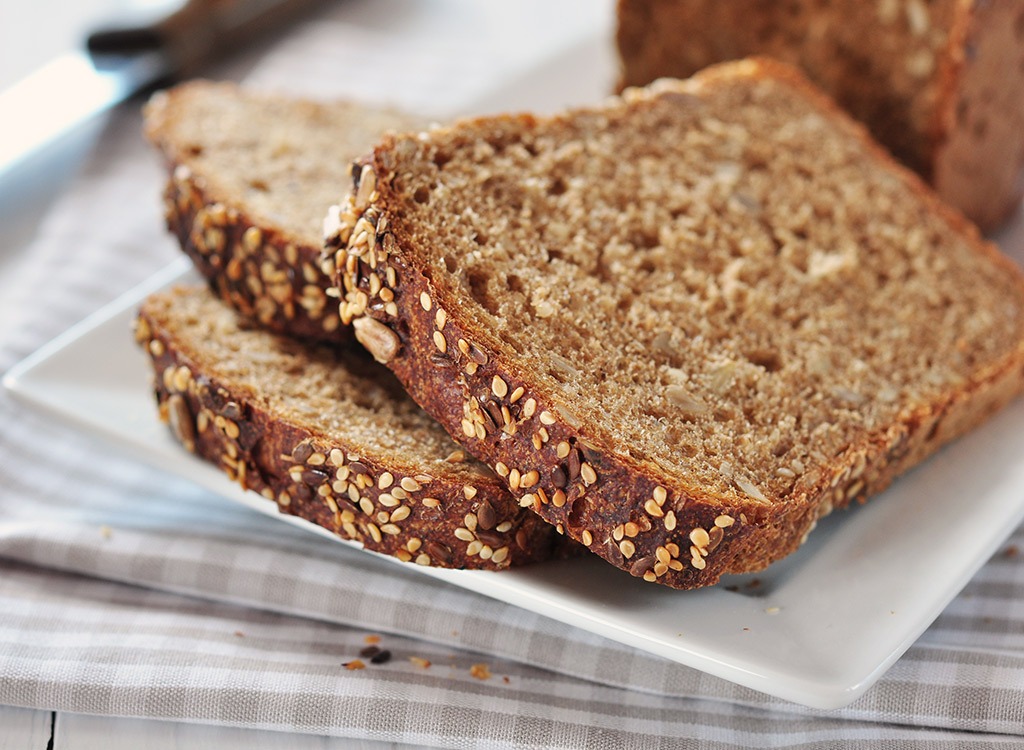
With the Paleo and keto diets getting all the buzz, you may think that carbs and gluten are bad for your health, but hold on. Whole grains are good for your heart. A 2016 review in the British Medical Journal found that three servings of whole grains per day was associated with a lower risk of coronary heart disease and cardiovascular disease. Opt for whole grain versions of pasta, breads, and cereals over their more processed cousins.
Fill Up On Pineapple
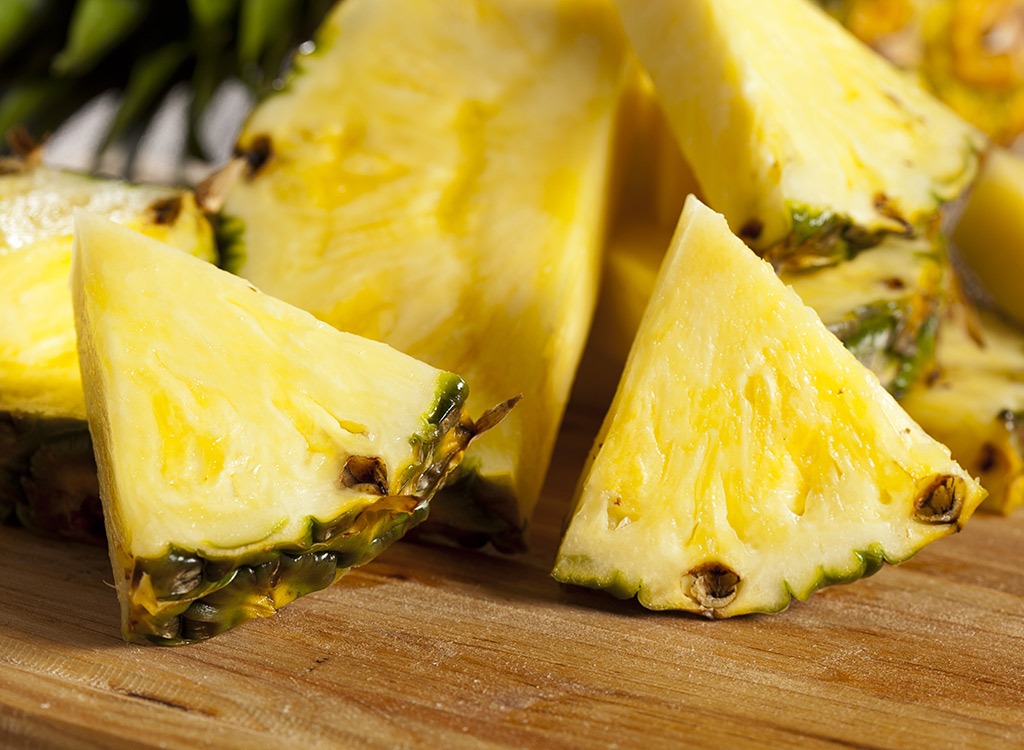
Noshing on pineapple won't just remind you of the beach, but it'll also give you a vitamin C boost, which may lower your risk of heart disease. Researchers have found that people who got more than 700 mg of vitamin C had a lower risk of coronary heart disease.
Don't Overlook Canola Oil
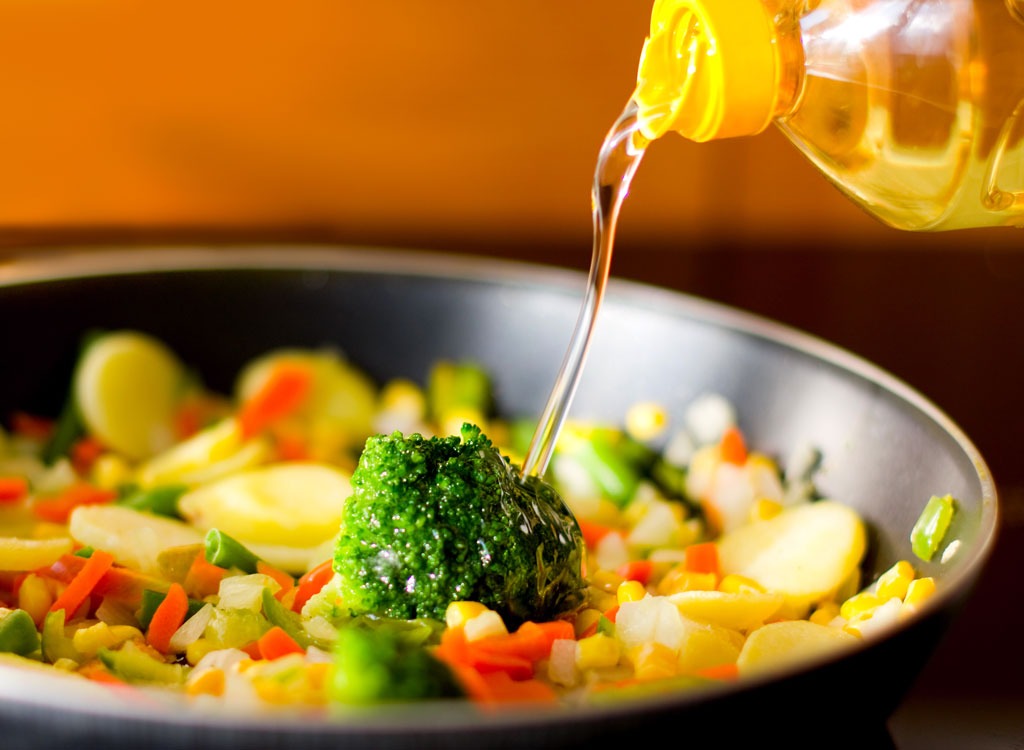
When you think of omega-3 fatty acids, you probably think of fatty fish and nuts, but canola oil is the second highest oil in omega-3s, says Goodson. "It's less expensive and very available. Cooking with canola oil can actually boost your heart's health for less money," she says.

